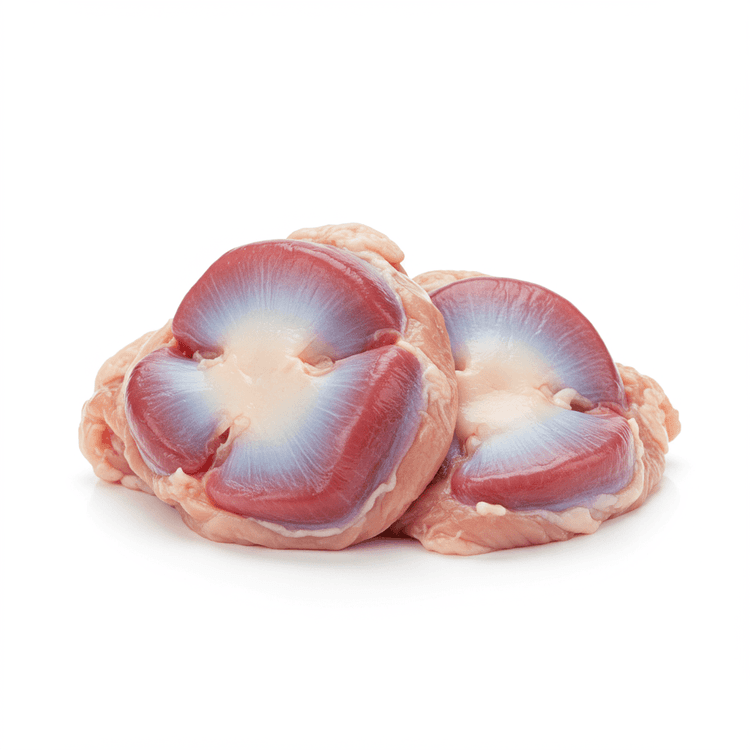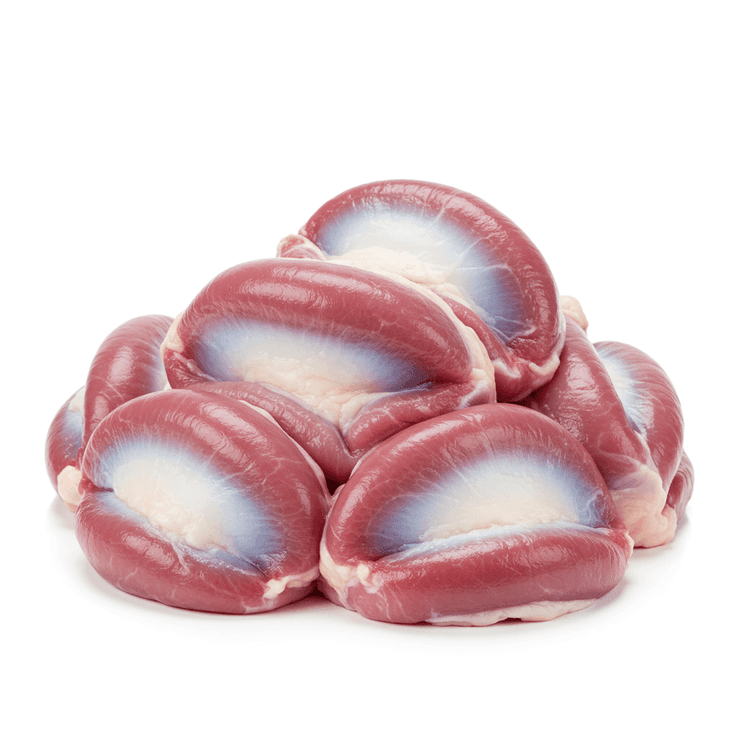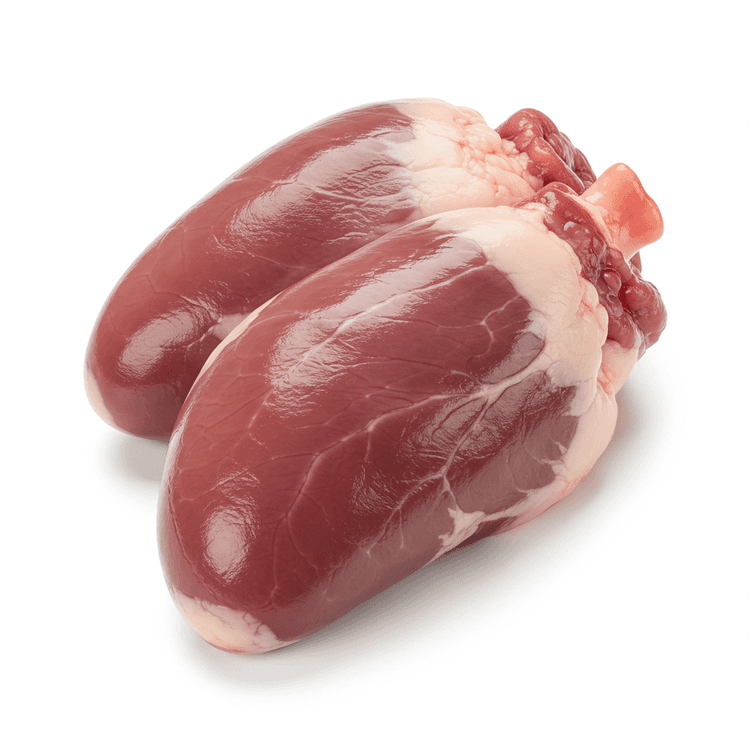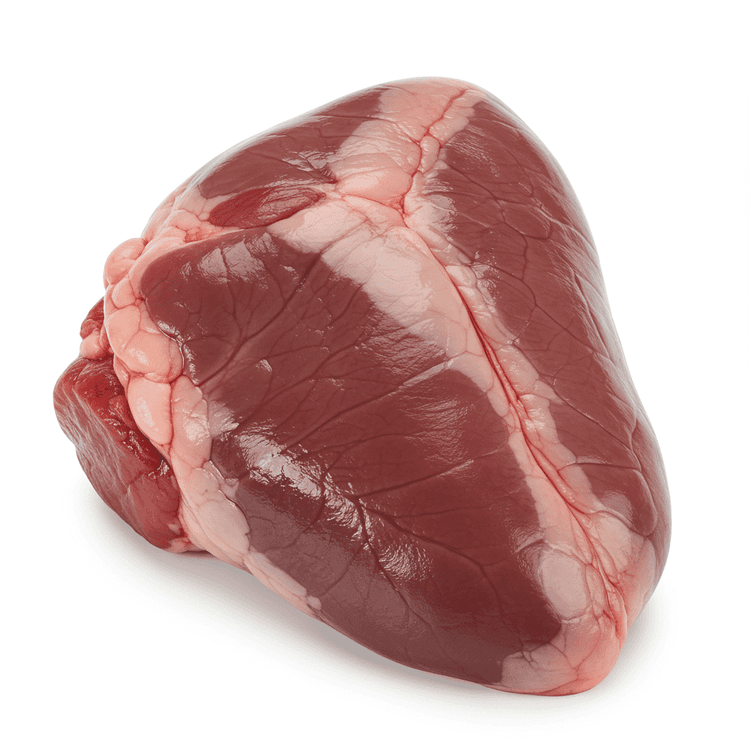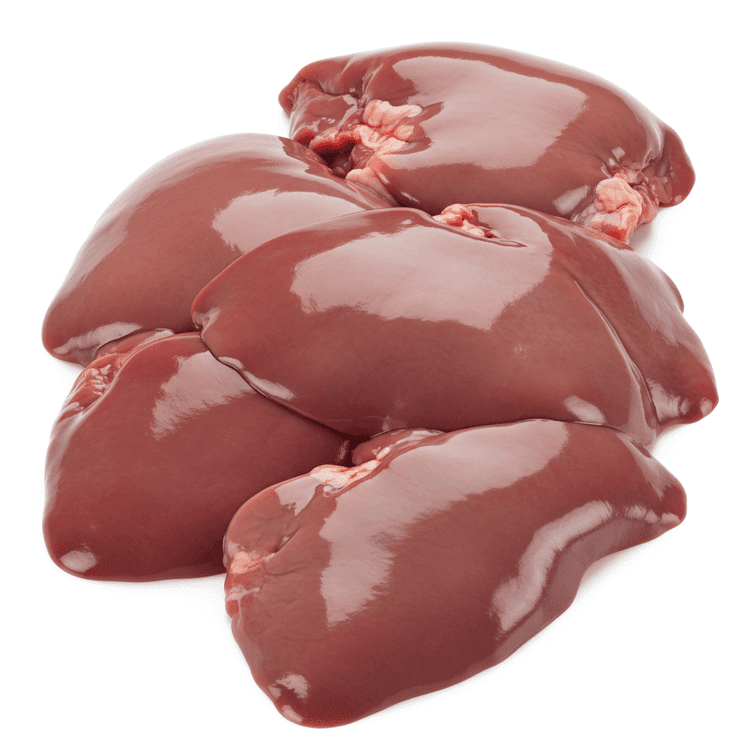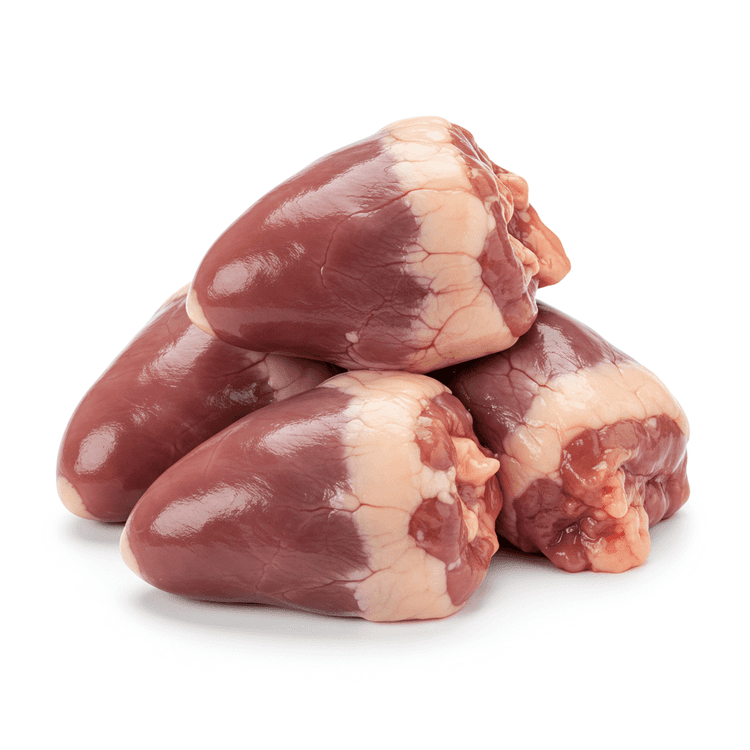
Chicken Heart
Chicken hearts, a nutrient-rich and often overlooked offal, offer a surprisingly delicious and versatile culinary experience. These small, cone-shaped organs boast a deep, slightly gamey flavor profile, often described as a more intense version of chicken thigh meat. Their texture is firm yet tender when cooked properly, offering a satisfying chew. Raw chicken hearts are a dark reddish-brown color. Explore the culinary possibilities of chicken hearts and discover a budget-friendly, protein-packed ingredient.
Common Uses
- Skewer chicken hearts and grill them for a smoky, protein-rich appetizer. Marinating them beforehand tenderizes the meat and infuses them with flavor.
- Use chicken hearts in stews and braises to add depth and richness to the broth. Their robust flavor complements hearty vegetables and other meats.
- Finely chop chicken hearts and incorporate them into ground meat mixtures for burgers or meatloaf. This adds moisture, flavor, and nutritional value.
- Sauté chicken hearts with onions, garlic, and herbs for a flavorful and quick stir-fry. Serve over rice or noodles for a satisfying meal.
- Deep fry marinated chicken hearts for a crispy, savory snack. Serve with your favorite dipping sauce.
- Add chicken hearts to pates or terrines for a richer, more complex flavor. Their unique taste adds a delicious dimension to these classic dishes.
Nutrition (per serving)
Nutrition (per serving)
Calories
217.0kcal (10.85%)
Protein
26.0g (52%)
Carbs
0.0g
Sugars
0.0g
Healthy Fat
6.0g
Unhealthy Fat
2.6g
% Daily Value based on a 2000 calorie diet
Nutrition (per serving)
Calories
217.0kcal (10.85%)
Protein
26.0g (52%)
Carbs
0.0g
Sugars
0.0g
Healthy Fat
6.0g
Unhealthy Fat
2.6g
% Daily Value based on a 2000 calorie diet
Health Benefits
- Rich in CoQ10, supporting heart health and energy production.
- Excellent source of iron, preventing anemia and boosting energy levels.
- High in vitamin B12, crucial for nerve function and red blood cell formation.
- Contains zinc, supporting immune function and wound healing.
- Good source of protein, essential for muscle building and repair.
- Provides taurine, an amino acid linked to cardiovascular benefits.
Chefadora AI is here.
Experience smarter, stress-free cooking.
Storage Tips
Fresh chicken hearts should be used within 1-2 days of purchase. Store them in the coldest part of your refrigerator, ideally in a sealed container or wrapped tightly in plastic wrap to prevent cross-contamination. If you are not planning to use them within that time, freeze them. To freeze, spread them out on a baking sheet to prevent clumping, then transfer them to a freezer bag or airtight container once frozen solid. Frozen chicken hearts can last for several months.
Marnirni-apinthi Building, Lot Fourteen,
North Terrace, Adelaide, South Australia, 5000
Australia
